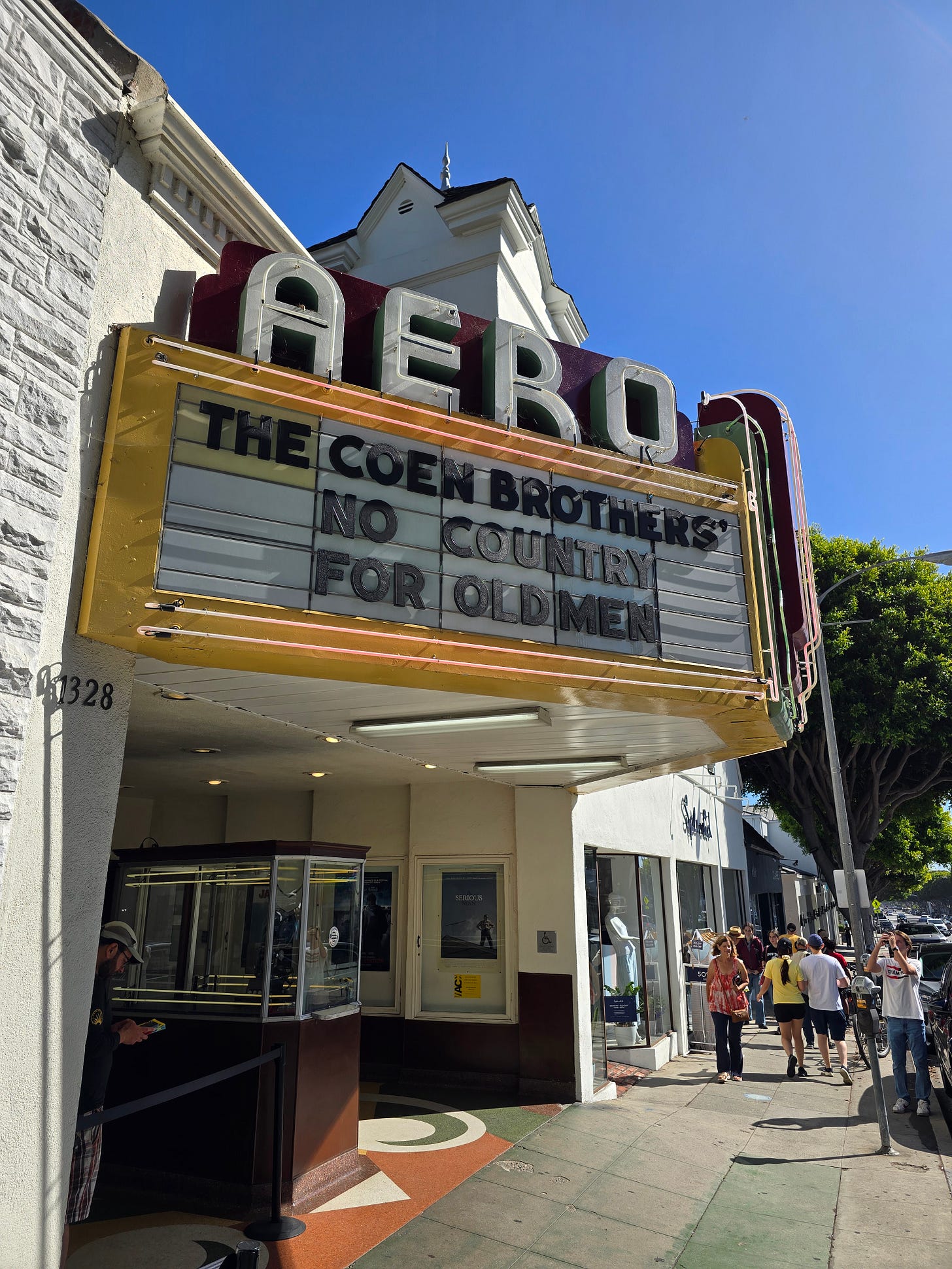FIRES LIT IN 'NO COUNTRY FOR OLD MEN'
The best picture winner in 2007 has a lot to say on this Father's DAY
My father died in 2020 and we weren’t really close before that, so Father’s Day has always been more an abstraction than a warm family day. In the past my nieces would shout me out on Father’s Day since I played a role in their upbringing. That was sweet and made me feel a bit more connection to the day’s celebratory vibe. I don’t have kids of own, something that I came to terms with a while ago. My wife and I still have hope, though I do wonder if my old ass would now be up to the task.
I’m in Los Angeles for a job this summer, away from Brooklyn and my history there, so Father’s Day is even more distant than usual. I noticed there was a screening of the Coen Brothers’ ‘No Country for Old Men’ at the Aero Theater in Santa Monica. Released in 2007, and set in pre-cell phone Texas, its a work of cinematic art that I hadn’t seen in a theater since the year of its release. I’ve watched it on various lap tops over the years but seeing it on the big screen seemed a delicious idea.
For a film with relatively sparse dialogue, it drills down into a number of major themes — capitalism run amok, the nature of violence, the legacy of the Vietnam War, the mystique of Texas and, traditional masculinity in an time of new values. Despite being two Jewish artists from Minnesota, Joel and Ethan Coen have a great knack for Southern regional flavor (see ‘Blood Simple,’ ‘O Brother, Where Art Thou?’) that made Cormac McCarthey’s already bleak novel into a journey in the soul of white male America when the old rules behavior were being discarded and abandoned.
Tommy Lee Jones’ Sherriff Ed Tom Bell is the film’s moral center, a man who admits to being “overwhelmed” by the rising tide of senseless violence in society, whether enacted by drug cartels or youngsters who just want the thrill of killing. He’s haunted by the many lawmen in his family — some crippled by a perpetrators bullet, others shot dead in their doorway before they reached their shot gun. Without expressing it in words, there’s no doubt that Bell fears for own life. Yet he doesn’t have clear idea of what he’d do in retirement. His self-image, and that of his ancestors, is embedded in that of a lawman. Who he is besides that is a challenge that awaits him at the film’s end.
I respect Bell’s fear of the future. The current management of this nation by a capricious, thin skinned leader makes every day a tale of “What now?” The turmoil that ripped through America post-Nam and post-Watergate (‘No County’ feels like its set in the late ‘70s or early ‘80s), now feel like a build up to the meltdown of institutions we’re witnessing today. This is a time when leadership finds stories that fit their narrative, instead of seeing things for what they are and not what they believe they should be.
I am not ready to join Ed Tom in resignation, but it’s temping to shake one’s head to try and escape the daily dose of indignation. But what I’ve come to accept is that I may not be a father to my own son or daughter, I am a elder in a nation that needs grounding and advocate for rejecting knee jerk pronouncements for measured thought. So the work I do, much of it based in history and art, is part of teaching, inspiring, and nurturing nuanced modes of thought. If a huge part of fatherhood is instruction, then I need to play my role to the best of my ability.
At the end of ‘No Country’ Ed Tom has two dreams about his late father. In the last one he sees his father riding ahead of him, looking to light a fire in the darkness and the cold of the night. May we all — fathers, sons, mothers and daughters — must light fires in the gloom of today so our we can all find our way home.




